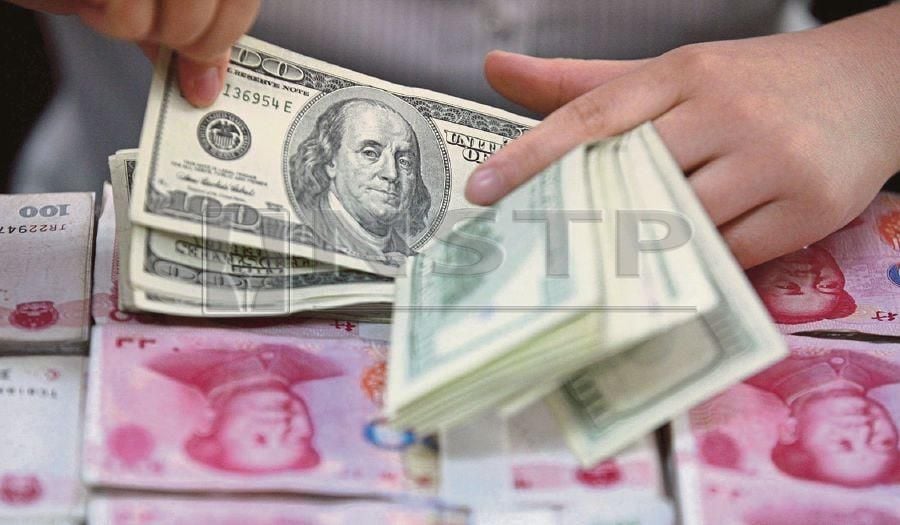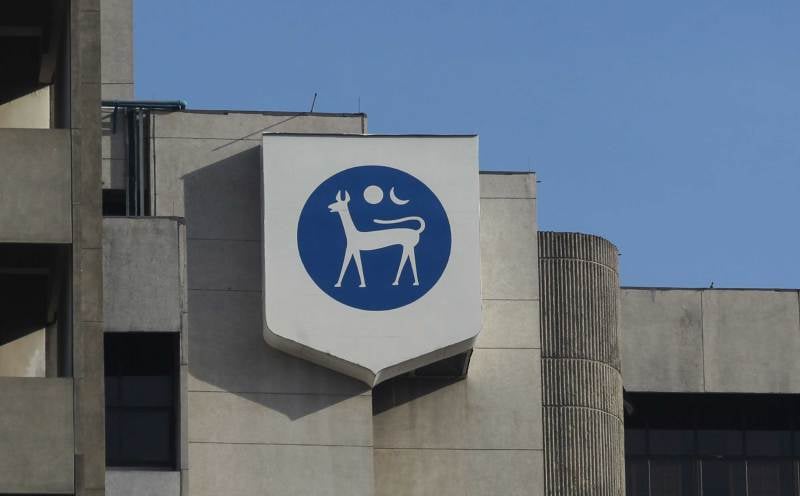THE United States has reimposed economic sanctions on Iran that had been lifted under the 2015 multilateral nuclear deal. The landmark deal, concluded after years of negotiations between Iran and the P5+1 group of world powers — the US, Britain, France, Russia and China plus Germany — places restrictions on Iran’s nuclear programme in exchange for the lifting of sanctions. The International Atomic Energy Agency has certified in 12 consecutive reports that Iran has been complying with its obligations under the deal.
Last May, the tweeting President Donald Trump unilaterally withdrew the US from the deal. The other powers disagreed with him and have pledged to uphold it. The US sanctions cover Iran’s oil exports, financial services and shipping, and are intended to have extraterritorial application. They are directed towards bringing about the collapse of the Iranian economy in the expectation that this would lead to an uprising that will depose the Iranian government and replace it with one more pliable to US dictates.
In other words, the US is seeking a regime change. Prior to his appointment as national security adviser to Trump, John Bolton told the counter-revolutionary Iranian opposition group, Mujahedin-e-Khalq (MEK), at a Paris conference last year that the behaviour and objectives of the regime are not going to change and, therefore, the only solution is to change the regime itself. Later, after his appointment, he backtracked and said regime change is not US policy. He cannot fool the world, however, as his well-publicised political activities have been for regime change in Iran.
The Iranian government has defiantly dismissed the sanctions as a new instance of oppression and declared that it is not afraid of US threats. Iran’s supreme leader, Ayatollah Ali Khamenei, said: “The challenge between the US and Iran has lasted for 40 years so far, and the US has made various efforts against us: military, economic and media warfare. There’s a key fact here: in this 40-year challenge, the defeated is the US and the victorious is the Islamic republic.”
The US sanctions’ laws cannot be enforced on economic entities and individuals from other countries conducting trade with the sanctioned state. To do so would be a serious infringement of the sovereignty of that country. Imposing unilateral extraterritorial sanctions on a United Nations member state with intent to destabilise it to bring about regime change would constitute aggression, which the UN is mandated to take measures to suppress.
Only the UN Security Council, under Article 42 of the UN Charter, has the authority to impose economic sanctions having extraterritorial application. Before doing so, it must determine the existence of any threat to peace, breach of peace or act of aggression. Hence no member state can, of its own accord, impose sanctions that would have extraterritorial effect. Such sanctions would be illegal under international law.
The US justifies the sanctions on the baseless accusation that Iran is supporting terrorism. Iran’s crime, in the eyes of the US, is its assertion of independence and refusal to submit to US orders, and its support for Hizbollah and Hamas, which are resisting Israel’s occupation of Palestine.
The role of the dollar as the world’s reserve currency, and its dominance of the international financial system, have enabled the US to enforce its extraterritorial sanctions on other states. There are moves to counter the US dollar imperialism. China, Russia, Iran, Venezuela and some other states have indicated that they would use currencies other than the dollar to conduct trade among themselves. This initiative, if implemented in trade between major economies, would seriously weaken the extraterritorial impact of the US sanctions.
In a joint statement, the European Union, France, Germany and Britain condemned the latest economic sanctions on Iran and pledged to protect European companies doing legitimate business with Iran. They would also seek to maintain financial channels operational with Iran and to ensure the continuation of Iranian oil and gas exports.
The EU has updated its Blocking Statute in response to the US withdrawing from the Iran nuclear deal and imposing extraterritorial sanctions. It forbids EU persons from complying with those sanctions, unless exceptionally authorised to do so by the European Commission in case non-compliance seriously damages their interests or the interests of the EU. It allows EU operators to recover damages arising from the extraterritorial sanctions within its scope from the persons causing them and nullifies the effect in the EU of any foreign court rulings based on them.
The EU is working to create a special purpose vehicle to do business with Iran. Russian Energy Minister Alexander Novak said his government will support Iran to counter US oil sanctions. Arrangements are in place to continue Russia’s trade relations with Iran, unaffected by US sanctions.
Russia has developed the System for Transfer of Financial Messages, an alternative money transfer system to the US-dominated SWIFT (Society for Worldwide Interbank Financial Telecommunication), which is based in Belgium. Russian financial regulators are in discussion with China, Turkey, Iran and other countries on linking the Russian system with theirs.
With the EU, China, Russia, Iran, Turkey and other countries taking steps to free their economies from US international financial dominance, does it signal the beginning of the demise of dollar imperialism? Russian Foreign Minister Sergei Lavrov recently said: “I am confident that the grave abuse of the role of the US dollar as a global reserve currency will result over time in the weakening and demise of its role.”
Senior analyst and derivatives strategist at JP Morgan Chase & Co, Dr Marko Kolanovic, has written that Trump’s isolationist foreign policy is a “catalyst for long-term de-dollarisation” among countries in Europe and Asia to the Middle East that have long lamented the hegemony of the US currency.
Malaysian companies and individuals should increasingly use national currencies in their business transactions. Our financial regulatory authorities should cooperate with others in Russia, China and other countries to de-link from the US-dominated international financial organisations, and free the world from dollar imperialism.
The writer is a visiting fellow at the Centre for Policy Research and International Studies (CenPRIS), Universiti Sains Malaysia











